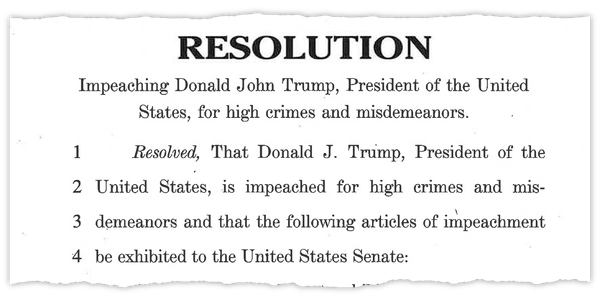Dear Commons Community,
President Trump yesterday signed an executive order designed to crack down on what he sees as rising anti-Semitism on college campuses. The order, which comes less than a year after his administration issued another order aimed at protecting free speech, drew mixed responses, with skeptics seeing the potential for conflict between the two measures. As reported by The Chronicle of Higher Education.
“How, for instance, should a campus respond when white nationalists declare that “Jews will not replace us,” as they did in 2017 during a violent confrontation in Charlottesville, Va.? And will colleges that are worried about running afoul of the latest order be more likely to punish activists who criticize Israel’s occupation of the West Bank? Getting those decisions wrong could mean losing a lot of federal money.
Colliding goals are nothing new to colleges that have long sought to balance the right of free speech with the expectations of a welcoming climate. But colleges may face even tougher questions about when speech that offends someone is anti-Semitic and when efforts to restrict such speech violate the First Amendment.
Trump announced his decision to sign the order in a statement issued by the White House on Wednesday, saying “the vile, hate-filled poison of anti-Semitism must be condemned and confronted everywhere and anywhere it appears.”
In March he issued another order that suggests that money be withheld from federally funded colleges that fail to promote “free inquiry.” The purpose, it said, is “to encourage institutions to foster environments that promote open, intellectually engaging, and diverse debate.”
Wednesday’s order is partly a response to the Boycott, Divestment, and Sanctions movement, or BDS, which calls on colleges and universities to take such actions against Israel because of its treatment of Palestinians. The movement has roiled campuses in recent years and prompted some Jewish students to say they feel threatened or harassed.
To critics, the latest action represents more unwelcome federal interference in college affairs. This fall the Trump administration ordered Duke University and the University of North Carolina at Chapel Hill to revise their joint program in Middle East studies, which it called biased, in part because it offered too little “positive” imagery of Judaism and Christianity in the region.
Jewish advocacy groups were divided on Wednesday’s order. The American Jewish Committee, a global advocacy group, welcomed it. A study conducted by the committee found that more than a third of Jewish young people said they had either experienced anti-Semitism on an American college campus themselves or knew someone who had.
“We trust that a careful application of this directive will enable university administrators to avoid running afoul of free-speech protections as they seek to root out anti-Semitism on their campuses,” the committee’s chief executive, David Harris, said in a written statement. He added that the committee would speak out against any attempt “to suppress rational criticism of Israel or its policies.”
Colleges will face tough cases in which they must decide whether speech is constitutionally protected, he said. “To date, though, responses to anti-Semitism on many campuses have often fallen short, leaving Jewish students vulnerable. Existing federal policy has not been fully enforced, and today’s order merely gives Jews what other groups have long enjoyed — the right not to be subject to a hostile environment on campus.”
Wednesday’s order says that anti-Semitic incidents have increased since 2013, “and students, in particular, continue to face anti-Semitic harassment in schools and on university and college campuses.”
Title VI of the Civil Rights Act of 1964 “prohibits discrimination on the basis of race, color, and national origin in programs and activities receiving federal financial assistance,” the order states. While it doesn’t specifically cover religious discrimination, “individuals who face discrimination on the basis of race, color, or national origin do not lose protection under Title VI for also being a member of a group that shares common religious practices,” the order says.
“Discrimination against Jews,” the order continues, “may give rise to a Title VI violation when the discrimination is based on an individual’s race, color, or national origin. It shall be the policy of the executive branch to enforce Title VI against prohibited forms of discrimination rooted in anti-Semitism as vigorously as against all other forms of discrimination prohibited by Title VI.”
A report in The New York Times on Tuesday alarmed some activists and groups by saying the order would define Judaism as a “national origin,” but the official proclamation contains no such language. On Twitter, reporters said the Times’s description reflected how the White House had initially portrayed the order.
It instructs agencies to apply the working definition of anti-Semitism adopted in 2016 by the International Holocaust Remembrance Alliance, which states that anti-Semitism is “a certain perception of Jews, which may be expressed as hatred toward Jews.”
In determining discriminatory intent, the order calls on agencies to consider contemporary examples of anti-Semitism identified by IHRA, as the alliance is called.
On its website the alliance says that “criticism of Israel similar to that leveled against any other country cannot be regarded as anti-Semitic. Anti-Semitism frequently charges Jews with conspiring to harm humanity, and it is often used to blame Jews for ‘why things go wrong.’ It is expressed in speech, writing, visual forms, and action, and employs sinister stereotypes and negative character traits.”
Among the specific examples it spells out are making demeaning or stereotypical allegations about Jews, including that Jews control the media and the economy, and denying the scope or intentionality of the Holocaust.
Other examples include “denying the Jewish people their right to self-determination, e.g., by claiming that the existence of a State of Israel is a racist endeavor” and comparing contemporary Israeli policy to that of the Nazis.
The order cautions that “agencies shall not diminish or infringe upon any right protected under federal law or under the First Amendment.” But some groups are not convinced that the two orders can coexist without conflict.
The American Civil Liberties Union has argued that the Holocaust alliance’s definition is too broad and that enforcing it could stifle free speech on college campuses.
The Foundation for Individual Rights in Education, known as FIRE, agreed. “While the order is couched in language intended to paper over the readily evident threat to expressive rights, its ambiguous directive and fundamental reliance on the IHRA definition and its examples will cause institutions to investigate and censor protected speech on their campuses,” the foundation said in a written statement.
“Having spent 20 years defending speakers from across the political spectrum, FIRE knows all too well that colleges and universities will rush to punish student and faculty speakers in an attempt to avoid federal investigation and enforcement,” the statement went on.
Sunaina Maira, a professor of Asian American studies at the University of California at Davis and a leader of the U.S. Campaign for the Academic and Cultural Boycott of Israel, said the order poses “a disturbing challenge to academic freedom as well as for human-rights advocacy.”
The IHRA definition “makes murky distinctions between anti-Semitism and criticism of the State of Israel,” she wrote in an email.
“U.S. academics have for years been afraid to criticize Israel,” she wrote, “and an ambiguous definition of anti-Semitism has been used to shut down human-rights activism and BDS campaigns related to Palestine-Israel.”
Katherine Franke, a law professor at Columbia University, said the order could exacerbate the tendency to interpret any criticism of Israel as anti-Semitism.
“If I raise the issue about the annexation of settlements, I am routinely hammered with criticism of being anti-Semitic,” she said. “Even if I don’t mention the Jewish people, there is a body of activists on campus and in well-funded outside organizations who are poised to describe any criticism of the State of Israel as anti-Semitic.”
With the order, Franke said, “a student could go to the Equal Opportunity Office and say, ‘Hey, I’m being discriminated against, and I’m in a hostile environment because people are talking about BDS. If the university doesn’t do anything about it, it exposes itself to the potential loss of funding.”
Cary Nelson, an emeritus professor of English at the University of Illinois at Urbana-Champaign who has criticized the boycott movement, fears that the executive order will squelch academic freedom and free speech are overblown.
Nelson, who is chairman of the executive committee of the Alliance for Academic Freedom, says the IHRA definition “can be used to promote rational discussions of the issues as opposed to emotional arguments about whether one is or isn’t anti-Semitic.” But relying on the definition could be messy, he said, because people enforcing it all come with their own political perspectives.
When it comes to the BDS movement, “we have student debates on campus that have become increasingly unpleasant —almost unbearable,” Nelson said. “A competition where everyone’s trying to win as the most victimized party is awful.”
Tony








